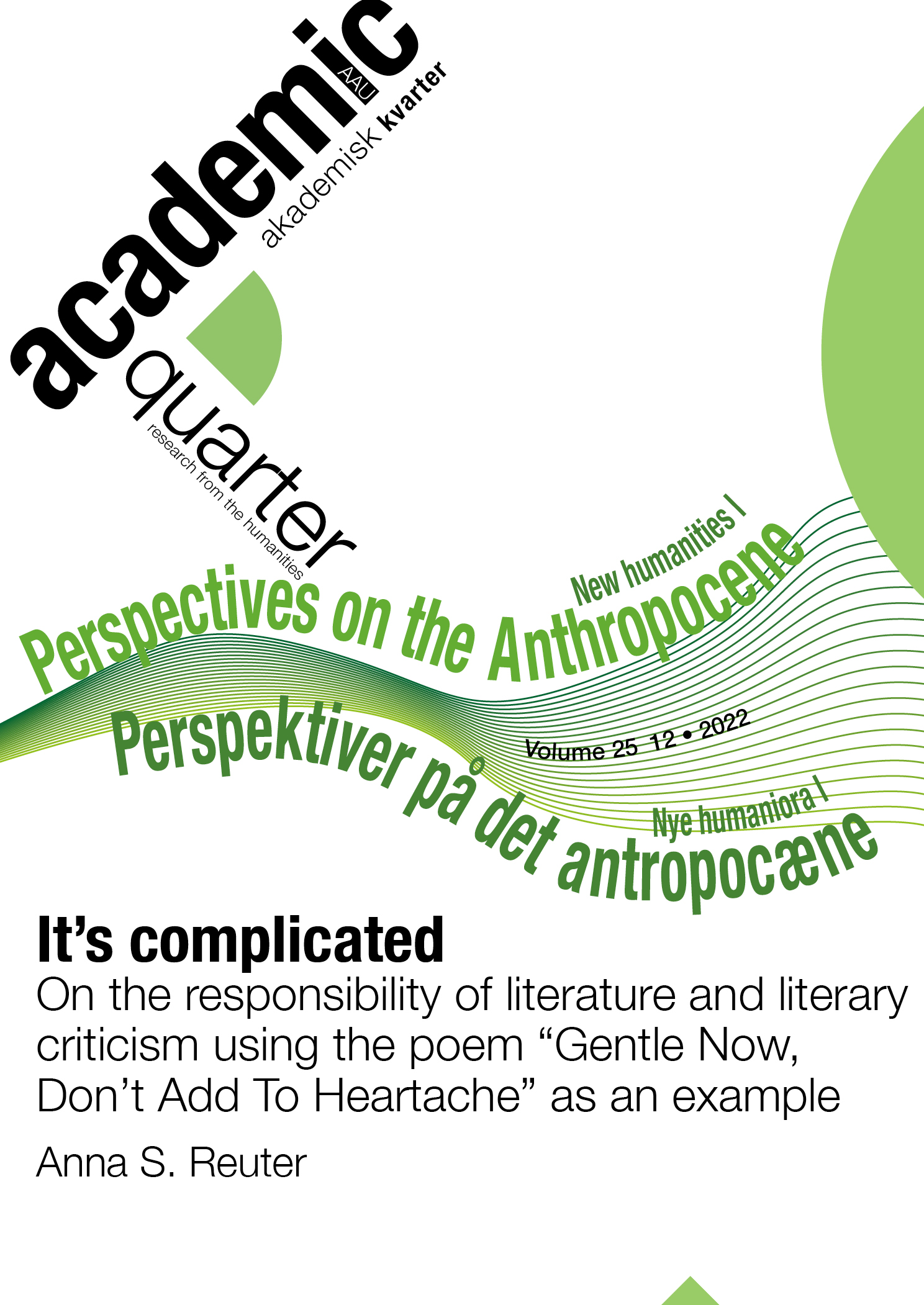Abstract | Abstract
What kind of critical approach do literary texts require that portray environmental misdeeds and display an ethos ostensibly calling into question the practices responsible for those misdeeds? Novels and poetry that address guilt and responsibility in the Anthropocene often aestheticize supposedly natural conditions, evoke nostalgic settings, and imagine a return to better times. Thus, they require literary criticism to focus on human responsibility and culpability toward the environment. However, the notion of responsibility is not only to be found in the text as a topic but might also be a necessary stance toward the text. Then, literary criticism would be a matter of responding and making responsibility productive. That means making intelligible the potential of being (speaking) with one another inherent in the structures of language. Drawing on the concept of interpellation and analyzing Juliana Spahr’s poem ”Gentle Now, Don’t Add to Heartache”, this article examines the relevance of the notion of responsibility for literary criticism.
